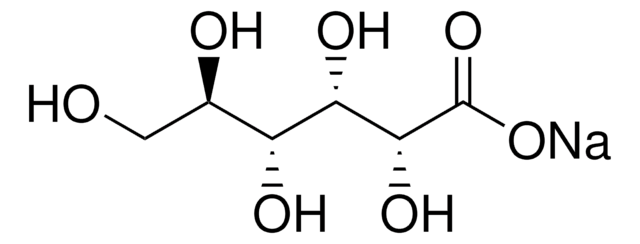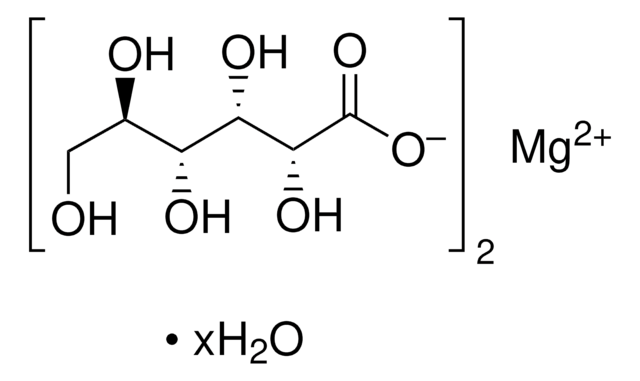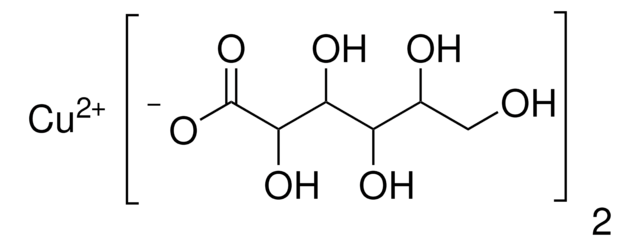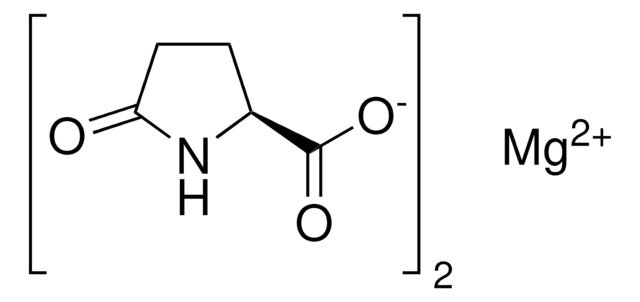G9130
Magnesium D-gluconate hydrate
≥98% (HPLC)
Synonym(s):
D-Gluconic acid hemimagnesium salt, D-Gluconic acid magnesium salt
About This Item
Recommended Products
Quality Level
Assay
≥98% (HPLC)
form
powder
technique(s)
HPLC: suitable
SMILES string
O.OC[C@@H](O)[C@@H](O)[C@H](O)[C@@H](O)C(=O)O[Mg]OC(=O)[C@H](O)[C@@H](O)[C@H](O)[C@H](O)CO
InChI
1S/2C6H12O7.Mg.H2O/c2*7-1-2(8)3(9)4(10)5(11)6(12)13;;/h2*2-5,7-11H,1H2,(H,12,13);;1H2/q;;+2;/p-2/t2*2-,3-,4+,5-;;/m11../s1
InChI key
IAKLPCRFBAZVRW-XRDLMGPZSA-L
Looking for similar products? Visit Product Comparison Guide
Biochem/physiol Actions
Other Notes
Storage Class Code
11 - Combustible Solids
WGK
WGK 3
Flash Point(F)
212.0 °F - closed cup
Flash Point(C)
100.00 °C - closed cup
Personal Protective Equipment
Choose from one of the most recent versions:
Certificates of Analysis (COA)
Don't see the Right Version?
If you require a particular version, you can look up a specific certificate by the Lot or Batch number.
Already Own This Product?
Find documentation for the products that you have recently purchased in the Document Library.
Customers Also Viewed
Our team of scientists has experience in all areas of research including Life Science, Material Science, Chemical Synthesis, Chromatography, Analytical and many others.
Contact Technical Service













